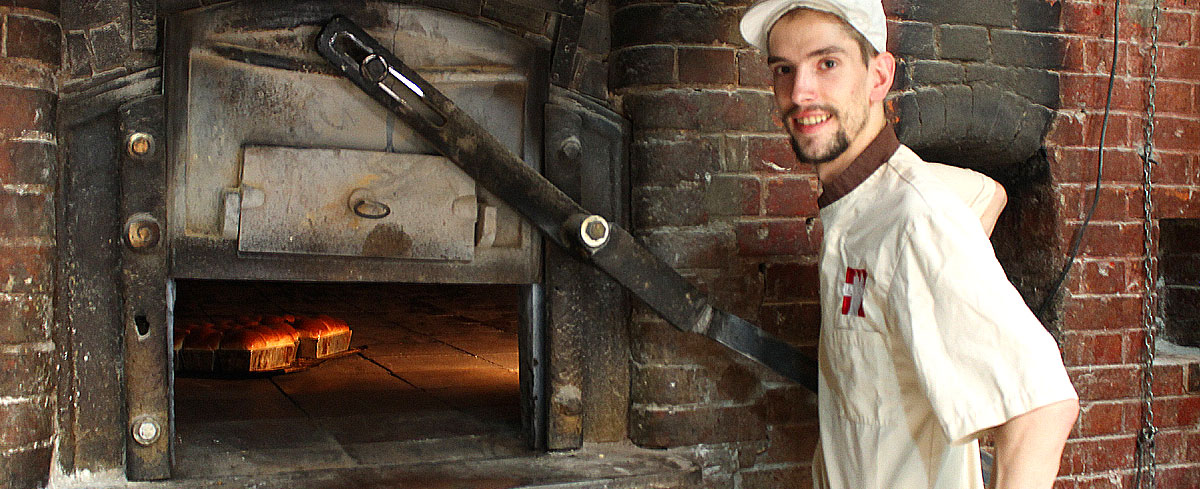There’s something of a secret on this quiet residential street in Villa Ortuzar, a relatively sleepy corner of Buenos Aires with low-rise houses, cobbled streets, flowering bougainvillea and the occasional splash of street art. Now named L’épi, the building at Rosetti 1769 has been a bakery for generations and its secret has remained well-preserved in time. It has one of the oldest ovens in the city. Set into the back wall of the building is a century-old wood-fired stone oven that spans a massive six metres in diameter. Built in 1911, at a time when bread was distributed door to door through the neighbourhood, the oven continues to run 24-hours a day under the gaze of a young Frenchman named Valentín Papin.
Valentín hails from near Nantes in Western France and started working in a bakery on an apprenticeship at the age of 15. He had an uncle who was a baker and had always been fascinated with the work. Wanting to spread his wings and experience life abroad during his four years’ study at the Ecole Supérieure, he arranged an internship in Buenos Aires with French chefs and entrepreneurs Olivier Hanocq and Bruno Gillot, owners of L’épi, and such was the experience that he lept at the chance to come back after finishing his studies in France.
Now 25, his plan is to stay in Buenos Aires. “I’m here to stay,” he says. “I like Argentine life, and I like the work. I’m young so this it’s a great opportunity to be in charge of production and to be able to work in such an artesanal way.”
The work is certainly artesanal. The oven is fired twice a day, using wood only, allowing for two bakes - at 5pm and at 4am. Once the temperature reaches 260C the breads go in, then the more delicate items like brioche go in after the temperature has cooled to around 200C. The temperature never gets much lower than 180 before the fire is lit again for the next batches.
“The process is continuous; we never stop,” Valentin says. “From 4am until midnight, there’s always someone here. The guys who are here at midday fire up the oven for the team that comes at 5pm, and that team fires the oven at midnight for those who arrive at 4am. We work for each other, like a family you could say. Nobody sees the product from start to finish, it’s more like an orchestra in which one person starts to play and then someone else takes up the melody and continues it, and so on. That way we make music in harmony.”
They work with naturally fermented dough, which brings its challenges and makes it even more important to work together. “Things can go wrong,” Valentin admits. “The weather affects things a lot. Sometimes the day starts well and then there’s a storm with a lot of heat and humidity. We use very long fermentations, which can be difficult to control. The dough we’re making today at midday won’t be baked until tomorrow at 5pm or even 4am the next day and you never know how the dough will reach each day, so we have to always pay attention, inspect the dough and talk with the other shift about it.”
He says that sometimes the difficulties in importing equipment to Argentina have conversely been a benefit allowing people to work in a more traditional way.
“I love the way we work here. In Europe, the bakery would have machines to do some of the work we do, but we shape every individual item by hand. Machines can never replace hands.
They can try to copy what hands do, but they never replace hands.”
L’épi, Roseti 1769
In Buenos Aires, work and passion often go hand in hand. Discover more Porteño professions.
